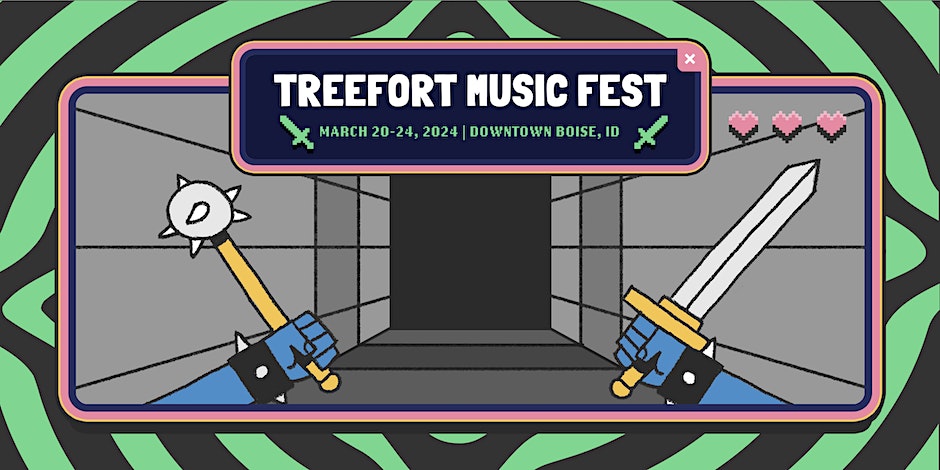
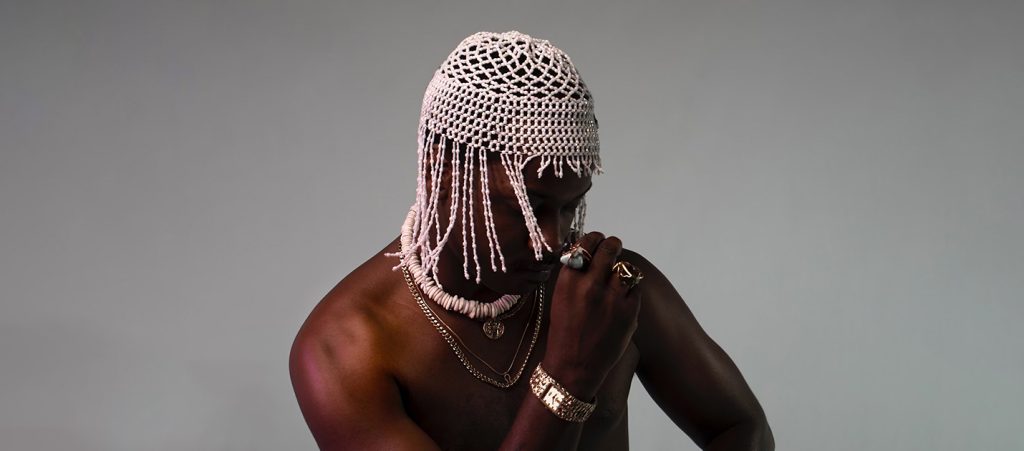
Channel Tres
Channel Tres blends the drive of Detroit techno and the silky-smooth grooves of Chicago house with the snarl of West Coast rap. He has been touted as the impetus for house music’s resurgence in pop music by outlets including BET, Billboard, V, Highsnobiety, The Ringer, and more. He’s toured globally, from major festivals to sold-out arenas, and found fans in everyone from Elton John to Tyler, the Creator. Following his successful 2020 EP “i can’t go outside” which debuted in Spotify’s Top 10 US Album Debuts, Channel finished a sold out North American & European headline tours in 2022 & 2023, and released his latest EP “Real Cultural Shit” which received praise across the industry.
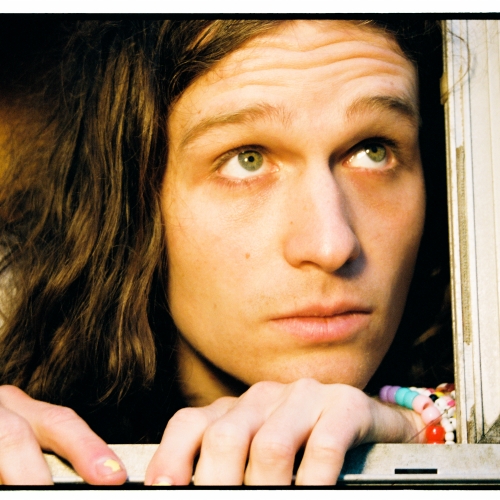
Briston Maroney
After a semi-nomadic childhood spent between Tennessee and Florida, 25-year-old singer, songwriter, and multi-instrumentalist Briston Maroney settled in Nashville — cutting his teeth playing house shows and winning over fans one living room at a time. He quickly became a de facto leader of sorts within the city’s growing DIY scene, curating lineups at tiny clubs across town and crafting a signature aesthetic with longtime friends turned visual collaborators, Joey Brodnax and Drew Bauml. In 2018, Maroney released Carnival, his debut EP for Canvasback Music/Atlantic Records, which spurned the RIAA Platinum-certified single “Freakin’ Out On The Interstate.” Additional EPs Indiana and Miracle followed, before Maroney unveiled his debut full-length album, Sunflower, in April of 2021. Throughout these releases, Maroney amassed critical acclaim from the likes of Billboard, NME, Vulture, Consequence of Sound, PAPER, Paste, American Songwriter and more, with NPR lauding Maroney’s skill for “writing powerful rock songs with grit and heart.” On the live front, Sunflower led to sold-out headline tour dates across the US, Canada, UK, and Europe; opening slots for Jack White, Rainbow Kitten Surprise, Cold War Kids, and Noah Kahan; and festival appearances from Bonnaroo to Outside Lands to Pitchfork Paris. 2022 saw Maroney release Sunflower: Deluxe — highlighted by a feature collaboration with Manchester Orchestra — and a string of standout singles and innovative music videos. That same year also marked the inaugural ‘Paradise Festival,’ a multi-night celebration of his adopted hometown (now an annual event set to return to Nashville each fall). Featuring a handpicked lineup of peers, and with a portion of proceeds supporting Nashville-based nonprofits, Paradise Fest further cements Maroney’s status as an artist who “has helped define a new generation of local music” (Nashville Scene). 2022’s edition was completely sold-out, with Maroney closing out each night with high-energy, inclusive, and celebratory headline sets. Maroney’s catalog has amassed over 430 million global streams across all platforms. He is set to release his sophomore album Ultrapure in September 2023.
PREVIOUS ARTIST
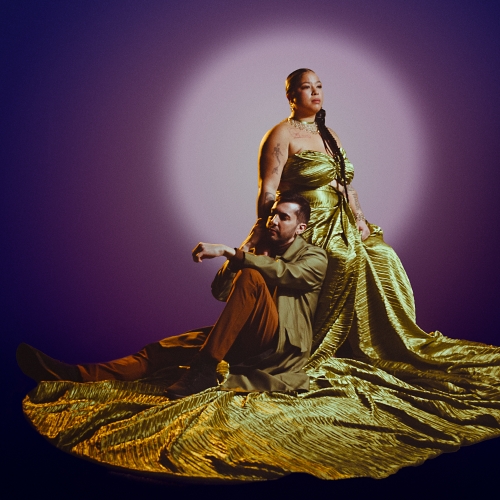
DRAMA
DRAMA is the multicultural collaboration between producer Na’el Shehade’s chic Chicago house-infused production style, and vocalist Via Rosa whose soulful delivery is inspired by the improvisational nature of jazz and playful patterns of hip-hop and bossa nova. The duo play to the complementary dynamics of their unlikely pairing by blurring the lines between R&B and dance-pop, heartbreak and bliss. Rosa grew up in a musical household; her parents played in a reggae band and toured as a family, homeschooling Rosa into her early teens and limiting her listening primarily to Sade, oldies, Brazilian and Afrobeat music. She kept poetry journals and by high school started writing songs and making beats. After moving to Chicago in 2010, Rosa connected with THEMPeople, a collective at the center of the city’s sprawling hip-hop scene. Meanwhile, Shehade inherited a strong work ethic from his immigrant parents. Born in Chicago, he fell in love with DJ culture as a kid and took up music production and engineering; his interest eventually led to professional opportunities, including early studio work with Chance the Rapper, Kanye West, and music projects for MTV and Bravo. Since a chance meeting in 2014 lead to the creation of DRAMA, the duo has bootstrapped a subtle rise on their own terms, self-releasing several EPs and mapping multiple tours with Midwestern grit. In early jam sessions the chemistry was clear; Rosa’s soulful delivery interlocked with Shehade’s chic Chicago house-infused production style. A lovesick sound emerged over two EPs, Gallows in 2016 and Lies After Love in 2018, and continued on to their debut album Dance Without Me in January 2020.
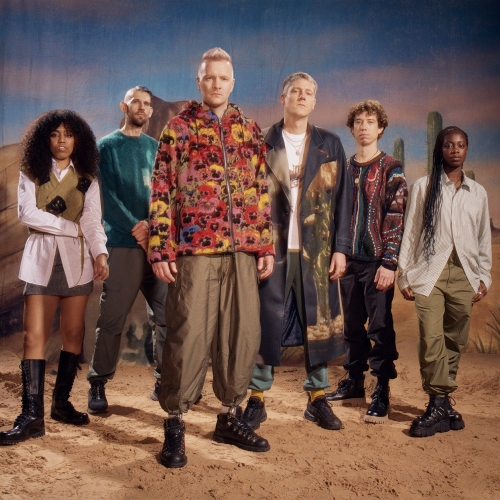
Franc Moody
It took the London band Franc Moody some time to perfect the ideal clap sound. They tried clapping their hands, then they tried numerous people clapping their hands. But after much experimentation, they discovered that the most pristine clap sound comes, yes, when you record three pairs of hands clapping in which one pair is wearing marigolds. This isn’t abnormal behaviour for Franc Moody. Listen to their songs and you’ll hear salt shakers and mugs, dripping radiators, the sound of someone zipping their flies, and their own family playing strings. It’s this kind of DIY sound design and attention to detail that has made the new London duo such a curious and captivating proposition. Franc Moody’s sound is contemporary funk, awash with electronic inspiration, human touches, and throbbing grooves. Like Daft Punk and Jamiroquai before them, they draw from the sounds, styles and techniques of funk, disco and soul while simultaneously threading in electronic influences of the here and now. And over their short lifespan as a band they’ve shown a masterful knack for creating rich and textured bangers, like “Dopamine” (which has amassed over 2 million streams) and “Dance Moves” (over 1 million streams). Their hypnotic and free-form live show has garnered a cult following, and they’ll be playing their biggest one to date this April in London’s 1100 capacity ‘Heaven’ as well as a 7 date tour including iconic Leeds venue Belgrave Music Hall and a trip to Dublin. Franc Moody see themselves as a collective, and have countless members once you include the musicians, guest vocalists, producers and animators that all play a part. But at the core of the band are the two ringleaders and songwriters: Ned and Jon. While Jon was born into a family of classical musicians and grew up on oboes, cellos and violins, Ned was musically educated by the stereo in his parents car, blasting old soul, 50s/60s New Orleans music, and the rock n roll sounds of Chuck Berry, Little Richard and Eddie Cochran. “I loved the melody and the groove of that music, but I think really I loved the energy of it as well,” explains Ned. The pair first met when they were part of a group of bands and musicians who took over an abandoned warehouse in North London back in 2014. “It was called the Arch,” explains Jon. “When we moved in, it was bare bones concrete walls. A horrible place basically. We built these two analogue recording studios. There were old microphones, hammered organs, and beaten up guitar amps. It was quite craggy.” The warehouse soon became a staple of the local area thanks to the raucous live shows they put on that lasted well into the night and beyond, packed with hundreds of party-goers crammed in like sardines as sweat dripped from the ceiling. The kind of parties where there’s no bouncer, one portaloo, and the live bands going on at 3am. This was the environment in which Ned and Jon cut their teeth as live musicians. “We learned to love performing music that made people dance,” explains Ned, “in the same way those old funk and soul artists used to. In fact, what we were doing at the warehouse was sort of in a similar tradition to the Zydeco sessions and crawfish boils around South Louisiana, purely focused around dancing. It was quite simple really.” Franc Moody began properly when the pair moved out of the Arch and began to focus on creating a project that married their influences. No longer living in the warehouse, they struggled to find a space big enough to fit a drum kit in. Instead, they started programming drums, and a natural electronic aesthetic began to permeate their more time-honored influences. When they went to Glastonbury each summer, they’d find themselves spending as much time watching Floating Points as George Clinton. By June 2016 they were releasing their first self titled EP, a collection of Giorgio Moroder-esque instrumentals. The first Franc Moody track in which all of their disparate ideas, influences, techniques and approaches really united on was “Dopamine,” which dropped in early 2017. Feeling inspired after a Prince binge, and with Ned stepping up to add vocals, the pair crafted a stunning slice of experimental disco madness. It had the four to the floor dance beat and the funky bass line, but it also had a disco tinged string section and even some oboe. Clash Magazine called it “a saucy piece of Prince inspired disco….” In 2018, “Dopamine” was included on their breakthrough EP, Dance Moves. The EP was a frenetic journey through shimmering intergalactic funk and undulating bass n’ drum grooves that was as hypnotic as it was arresting. On Spotify, it has amassed over 4 million streams across the eight songs. One of the lead tracks, “Super Star Struck” also saw them commission their first video. In a short animated film by Crack Stevens and Mason London, the female protagonist of the songs is reimagined as an unlikely old lady superhero (based on Crack Steven’s aunt) spreading joy across the planet. In their follow up single, “Pheremones,” the same video team got together to create a prequel in which the superhero visits an underwater Atlantis. A fair chunk of Franc Moody’s success has come thanks to the forest blaze of praise that comes from their mesmerising live shows. As a duo who came up via the warehouse rave scene, they feel their most comfortable when they are onstage, surrounded by the incredible musicians and friends they feel lucky to call their band, causing a crowd of hundreds to explode with ecstasy. It’s a vibe they carry with them, whether they are supporting Friendly Fires on their UK tour or rocking out to thousands at Lovebox.
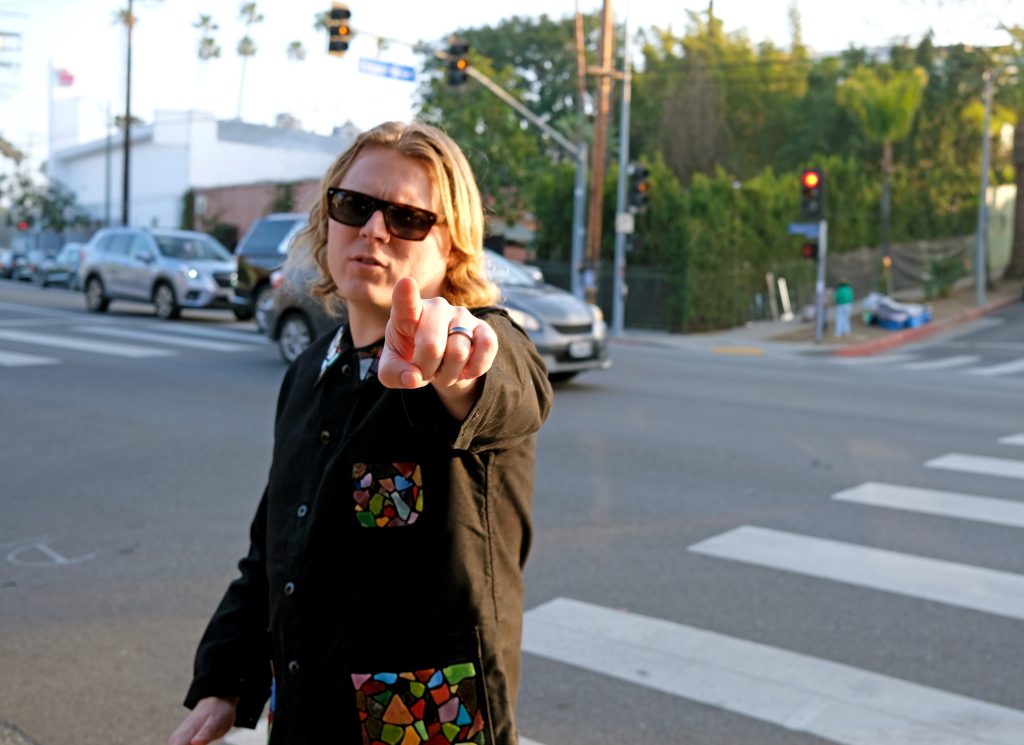
Ty Segall
Ty Segall follows 2022’s acoustic introspection opus “Hello, Hi” with a deeper, wilder journey to the center of the self. With Three Bells, he’s created a set of his most ambitious, elastic songs, using his musical vocabulary with ever-increasing sophistication. It’s an obsessive quest for an expression that answers back to the riptide always pulling him subconsciously into the depths. Questions we all ask in our own private mirrors are faced down here—and regardless of what the mysterious “Three Bells” mean in the context of the album’s libretto, you can be assured that Ty’s ringing them for himself, and for the rest of us in turn. It’s a growing up and out of your head parable, but the farther out you get, the farther in you go. The two-headed suggestion of 2012’s Twins has grown ever more complex, as the outside/inside world of perception dissolves into a greater world of the senses—all six or seven of them! Since Ty deals in sounds, Three Bells rings with them most of all: sounds signaling the next phase, ringing to keep you stuck, or to set you free, with guitars like voices, questioning and answering the others in their turn. Since 2008, the singer/guitarist/puzzled panther we call Ty Segall has played out his hunger to be free over a dozen solo LPs and a series of other-named projects. In his music, freedom has taken the form of a rippling eclecticism in songs and production sounds, all of them conversing from album to album in a mad diversity of voices. Across the discograverse, 2014’s Manipulator and 2018’s Freedom’s Goblin precede Three Bells in double-album epicity, each unfurling its own multivarious tapestry in an atmosphere of gleeful octophenia, as Ty throws everything against the wall, delighting in how much he can stick there. With all fifteen songs brimming with perspectives, shape-shifting incessantly, not even waiting for a new song to work into the next idea, Three Bells steps into the shoes of both his previous doubles at the same time, designing finally to do the extended format justice. The acoustic songs of “Hello, Hi” had been a blast of fresh air; wanting another hit of that sweet air, Ty recognized that his body was craving to play the drums. This was a key that let him into the album— the songwriting happening on both guitar and drums. As the songs emerged, Ty pushed them out farther and farther compositionally, challenging the way they’d be played, then playing much of Three Bells in conversation with himself—a decision that further elevates the album’s conception. But you don’t get outside/inside all on your own—for Three Bells, Ty and Denée Segall collaborated on five of the songs. In Ty’s world, Denée forms the second self outside his self. And these selves radiate out into the world through other selves. Co-producer Cooper Crain, whose contributions to Harmonizer and “Hello, Hi” were deep, engineered and mixed most of the album, again bringing his individual vision into the process. Finally, some of the songs as written needed the kind of playing that Ty couldn’t get alone. On some numbers, Emmett Kelly’s bass parts not only addressed that need, but inspired the way the songs eventually went down. So it was when the Freedom Band was called in to play; their contributions transformed the material. Three Bells kind of goes beyond songs. The fifteen of them work together as a mosaic, creating the larger work at the same time as they stand on their own. Composing the album as a piece, Ty formed certain chord shapes over and over again, making thematic material that each song moves through in its own way, building a claustrophobic/paranoia vibe, cycling bold thrusts forward into ego deaths, the one-step-forward, two steps- back patterns framing an overriding ask: what we can do to get past the back-and-forth conversation, to arrive at a place of acceptance. Three Bells takes Ty Segall’s trips so much deeper and farther than they’ve gone before—a masterpiece of personal expression, expressed through words, music and production, parabolically addressing malaise with compassion in a flowing, unstoppable hour-plus of intoxicating sound.
